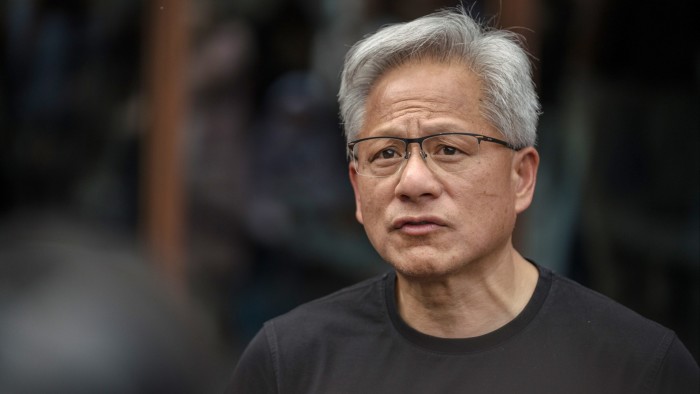Unlock the White House Watch newsletter for free
Your guide to what Trump’s second term means for Washington, business and the world
The US commerce department has started issuing licences to Nvidia to export H20 chips to China following weeks of inaction, after chief executive Jensen Huang met President Donald Trump at the White House.
A US official told the Financial Times the bureau of industry and security, the arm of the commerce department that oversees export controls, had begun to issue licences for the H20.
Nvidia designed the chip for the Chinese market after the Biden administration imposed export controls on more advanced artificial intelligence chips.
In April, the Trump administration appeared to take a tougher line by telling Nvidia it could not sell the H20 to China. Trump reversed course after Huang visited the White House and directly lobbied the president. But Nvidia was frustrated that three weeks after the decision, the administration had not started issuing the licences.
Huang visited the White House on Wednesday and held another meeting with the president. Two days after the meeting, the commerce department starting issue the licences, according to people familiar with the decision.
One person familiar with the situation said the decision to press ahead with the export licenses came after Huang’s meeting with Trump in the Oval Office.
Nvidia and the commerce department declined to comment.
The H20 has become the focus of a debate between security officials who say allowing China to buy the H20 will help its military. But Nvidia argues that blocking US technology exports forces China to accelerate innovation.
The Financial Times reported last week that 20 security experts, including Matt Pottinger, deputy national security adviser in the first Trump administration, and David Feith, who served at the National Security Council earlier this year, wrote to commerce secretary Howard Lutnick to urge him not to allow H20 sales to China.
In the letter, the security officials said the move would be a “strategic mis-step that endangers the United States’ economic and military edge in artificial intelligence”. Nvidia countered that the criticism was “misguided” and rejected the argument that China could use the H20 to enhance its military capabilities.
Nvidia took a $4.5bn hit in the July quarter, as well as an additional $2.5bn in missed sales, after the White House introduced the original licence requirement. The move came as a surprise to the company, which had only recently informed Chinese clients that it expected them to continue.
It was viewed as a ban that would kill the legal sale of Nvidia’s AI chips in China, cutting the company off from a market that Huang has said will hit $50bn in the next two to three years.
The company had forecast an $8bn loss in China revenue for the July quarter.
Recommended
The company was, however, exploring the potential for a redesigned AI chip for the China market that was compliant with the new export rule.
Huang has warned the restrictions will result in the likes of Huawei gaining an edge in a global race to build the hardware underpinning artificial intelligence.
Nvidia had already gone from a 95 per cent share of that market to a 50 per cent share in four years as Chinese rivals gained ground, Huang said in May, branding the US export policies a “failure”.



